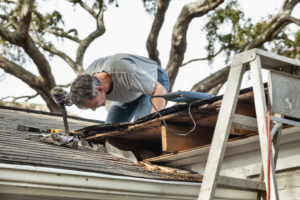Brian Stutheit: A Top Denver Construction Lawyer – Denver Magazine
Our many years experience with construction law enables us to represent homeowners, home buyers and sellers, commercial property owners, contractors, subcontractors, architects and engineers in almost any situation which requires a construction lawyer.
For over 20 years as a construction lawyer who offices in Jefferson County, Brian Stutheit has provided legal guidance and strong representation regarding:
- Arbitration and mediation.
- Contracts and contract issues – We write and review contracts for new construction or repairs. We resolve construction delay or non-performance claims, warranty matters, disputes over work quality and scope, indemnity demands and subrogation claims.
- Construction defects law for homeowners – We actually try cases about defective construction, including water leaks, foundation movement, roofing failures, plumbing, hvac performance, walls cracking, concrete problems, stucco, deck failure, and exterior drainage and grade. Many cases require expert witnesses to prove the standard of care, or costs of repair. This Denver construction lawyer knows the construction experts to prove your case.
- Collections for construction professionals.
- Construction defect and design professional defense – We represent contractors, trades, architects and engineers in lawsuits alleging construction defects, negligence, breach of contract and design professional liability. We work both as personal counsel, and as insurance defense counsel.
- Insurance and construction – Helping owners to obtain fair compensation for property damage from hail, snow, sewer line backups, roof collapse, water and fire. We also protect contractors and engineers whose liability insurance carriers deny defense to a claim.
- Mechanic’s liens – We preserve lien rights and handle lien litigation to assure that contractors and material suppliers are paid. We help property owners fight improper and spurious liens. If you are threatened with a wrongful lien on your home, we can probably protect you.
- Seller fraud, home inspector negligence and failure to disclose defects. Read our blog about home inspectors before you buy a house. We sue realtors as well as sellers. We defend sellers against claims of nondisclosure.
- Trespass and Nuisance – flooding, trash and debris, fence and boundary encroachments, unsightly conditions that affect property value.

Construction Defect Statute of Limitations and Statute of Repose
A Colorado statute says that all actions for damages for any deficiency in design, planning, construction, or supervision of construction must be commenced within two years from when the claimant discovers or should have discovered the “physical manifestations of a defect.” What is a physical manifestation of a defect? When should a physical manifestation have been discovered?
In addition to the two year limitations period, Colorado imposes an absolute bar on bringing a defect lawsuit six years after substantial completion of construction. This is known as the statute of repose. If the defect is first discovered or known during the fifth of sixth year after substantial completion, the period of repose continues for two years from when the defect becomes known. So, it is possible that the statute of repose will allow a lawsuit within eight years after construction.
Claims for deceptive practices or fraud have a different statute of limitations. Colorado has a mandatory claim process that must be completed before a property owner may commence a lawsuit against a “construction professional.” This is the Construction Defect Action Reform Act, commonly known as CDARA.
The statute of limitations makes or breaks many a case. The law is complicated. If you see signs of construction defects, you should consult an experienced Denver construction lawyer right away. Do not wait while negotiating, or while you try to figure out what is going on.
Realtors and the Law
It is crucial that a buyer or seller understand who the realtor represents, because a real estate broker who does not represent you will claim no duty to uncover flaws or disclose property information which affects you.
The Code of Ethics and Standards of Practice of the National Association of Realtors says realtors shall avoid exaggeration, misrepresentation, or concealment of pertinent facts, but they are not obligated to discover “latent” defects in the property. Latent defects are those not easily visible.
The most important source of law on duties in a real estate sale is the contract between the realtor and her client, and the purchase or construction contract. You must read and understand the documents.
